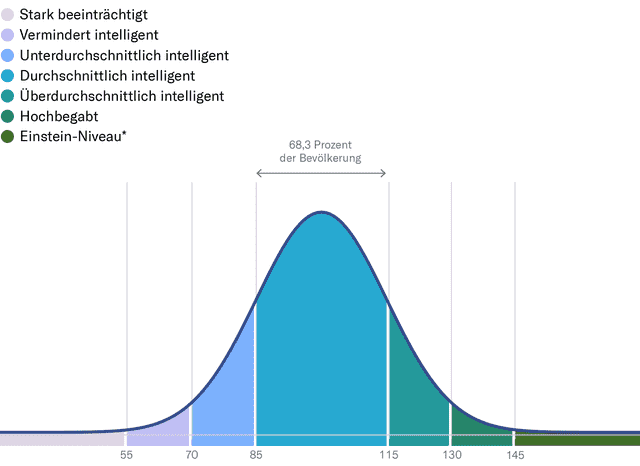We always want more. And we always want to get the best out of ourselves. Average is forbidden. Just why? A plea against the optimization mania.
Many parents think their children are special. They are promoted accordingly.
One of my best friends is Coach. A very good one, I would say, at least it’s been fully booked for the last few years. The companies overturn themselves with positive feedback and follow-up orders: change management, personality development, the whole program. She only bites her teeth on me.
Not that we have real meetings, but whenever we see each other and talk about job and money, she tries to get me around with a hymn of praise for my qualities: I’m entertaining, I have charisma, I write well and I’m good at it convey. At least in their opinion. I should offer seminars. But: I am too modest. More self-expression! If she had her way, I would have to promote every snippet of my work on social media, bilingually, of course.
Your enthusiasm is so impressive that I get a little bit infected every time and am on the verge of unleashing all this potential that is safely dormant within me. Or at least pimp my linked-in page for starters. Only to row back after a few minutes: “You know, I actually think it’s okay how everything is going,” I then say. In terms of self-optimization, of course, a total declaration of bankruptcy. But because she’s a good friend, she just smiles mildly and lets me off the hook again. for now.
Being better than the others – a full-time job
Not getting out of yourself no longer fits in with the times. After all, we have more options than ever before to make our lives more beautiful, richer, smarter or better in any other way: coaching, beauty treatments, personal style consultants, apps for optimal metabolism.
The self-improvement industry is in full swing and is getting better and better itself. Anyone who doesn’t take part is obviously lacking in ambition, as he or she is missing the opportunity to advance to a new, better self, to surpass themselves and others, to stand out from the crowd. Because that is what our individualized society is all about. Or?
Nothing comes from nothing, goes the old smartass saying. Today it should probably be called: More comes from more. It is damn exhausting to want to be completely optimized.
I still remember how I only wanted to renovate the living room and ended up turning the whole apartment inside out (which, in addition to a fortune, almost cost me my marriage). Personal “further development” usually works the same way: once you start, a domino effect inevitably sets in: you have to tackle this and that and that too! After all, holistic thinking is the «key». It will soon become a full-time job with a rather thankless client: yourself.
In the perfectionism trap
But of course we have long been aware of this problem. The Economist published an article with the title a good year ago «The Perfectionism Trap». The text has been circulating on Instagram ever since, which is not without a certain irony, considering that the prevailing narcissism there is partly responsible for this development.
London psychoanalyst Josh Cohen writes in the article about his experiences with patients who constantly pant after some kind of ideal. And at some point he asks the much more crucial question: since when have we actually been so dissatisfied with being «ordinary»? Ordinary, average, mediocre. The perfectly trimmed hair on the back of your neck stands up straight away!
Without wanting to offend anyone, most of you reading this are likely to be as intelligent as I am.
Over two-thirds of the population is typically intelligent, meaning their IQ ranges from 85 to 115. I’m somewhere there. With my studies of film and television sciences back then. Only 13.5 percent are above or below average. Only 2.1 percent are gifted. Similarly few are probably extraordinarily beautiful, outstandingly musical or insanely athletic.
Nevertheless, we are drummed into the fact that we have to be beautiful, musical, and sporty. And more than anyone else. Or worse, we tease ourselves with it. To make us feel bad, sorry: to make us feel “better” than all the people around us with whom we constantly compare ourselves.
“You are good the way you are” – really?
The median salary in Switzerland is at CHF 6665 gross per month. That is significantly more than in Germany (3427 euros, the equivalent of 3324 francs). But there, too, I would be quite good in my group: with an average salary of 5265 euros (5107 francs), academics in Germany earn above average.
So what’s actually so bad about being a normal earner?
Anyone who has children may remember how important it is to have a “completely normal” baby in the beginning. The pediatrician enters weight and height on growth charts. If these values don’t deviate much from the mean, that’s a good sign. The averageness of their child is therefore the greatest gift for parents at the beginning. Later they tell him «You are good the way you are». Because it sounds right and is in some parenting guide.
But then they soon do the opposite: They arrange play dates with other children who promise (supposedly) particularly good contact. They send their offspring to elite schools. They make sure that the au pair is bilingual so that the child also learns a second language, and so on.
Sure, the competition out there is getting tougher, at least that’s what it feels like. But most parents also think that their own offspring is something very special. Nobody dares to say that you, your husband, your children are average. The word has a bad reputation. In a study of American college professors, 94 percent of respondents said they consider yourself above average and to do their job better than their colleagues.
94 percent! If 94 percent were better than average, then average would be . . . That can’t even happen.
Like a fish in a school
“Indifference is the world’s revenge on the mediocre,” wrote Oscar Wilde, who was undoubtedly a genius without knowing the taste of the masses. But being in the middle of society can also have advantages. Just imagining how you are floating as one fish among many in the middle of a swarm conveys a bit of warmth and security.
Those at the spearhead may be celebrated. But as is well known, only very few make it to the top. And the air up there is supposed to be pretty thin and drafty. In the slipstream, on the other hand, it is more pleasant to drive, possibly longer. And even if they were all as excellent and extraordinary as they think, they would no longer be anything special, but – exactly: masses.
However, being mediocre in no way means being unambitious. To belong to the middle class, you first have to create it. It depends on how you interpret the term. For me, mediocrity means above all not being overly ambitious, but keeping a healthy balance. I don’t want to pursue life as a high-performance sport à la “after the game is before the game”.
What speaks against first enjoying what has been achieved instead of immediately devoting oneself to the next goal, the next project, the next benchmark? How am I supposed to love myself (old workshop classic) when I’m just trying to get rid of my weaknesses and strengthen my strengths even more?
Mediocrity can also mean not overtaxing yourself and others, but going through life as balanced as possible.
humility in lockdown
For the post-war generation, average was still the measure of all things. After years of deprivation, there was suddenly enough for everyone. In times of rising mass production, perfectionism meant being like everyone else, buying and wearing the same things. Now that we’ve had everything for a long time, the ordinary should suddenly no longer be enough. The basic fare is booked at most with the low-cost airline, apart from that it has to be the special edition everywhere.
In his text, psychoanalyst Josh Cohen mentions patients who describe the pandemic as a welcome interruption to self-improvement. If you think back, you might catch yourself thinking that lockdowns and the obligation to work from home were actually a good exercise in humility.
Suddenly we longed for maximum normality. The simple pleasures were suddenly the best: baking, planting seedlings, finally cleaning the silver. Instead, there was less make-up, tinted, and networking. Probably no one wants to repeat the experiment, but many had less stress at the time, despite all the adversities.
I remember watching the series “Normal People” during this time, based on the bestseller by Sally Rooney, who certainly chose the banal title as a deliberate understatement.
The young lovers Marianne and Connell are not that average, and yet I found the title pleasantly slow in our full-throttle society. At the very least, he suggested that there’s nothing uncool about being a normal person with normal problems. But that it is precisely this milieu that still tells the best stories.
Among my friends I count some quite eccentric characters who are successful above average and get a lot of attention and respect. i love them all Or let’s say: They are of course exactly right the way they are. But the bottom line is that the weekends end more relaxed with those people who are courageous, self-confident and ultimately satisfied enough to describe themselves as good average.

